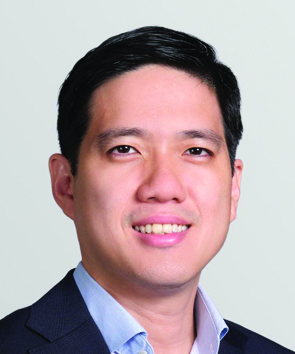
Mr Gabriel Ho Jimin is Chairman of Asia Medical Enviro Services (AMES), the leading medical waste treatment provider servicing the majority of hospitals in Singapore. He is actively involved in healthcare and infrastructure services. Under his management together with the staff, AMES had no service disruption, zero Covid cases for 1.5 years, and forged closer collaboration with hospitals and regulators. He was previously a Board Director at UEMS, a leading healthcare facility services provider in Singapore, Malaysia and Taiwan. He is currently a Board Director of Select Group, which catered daily meals to foreign workers in dormitory lockdowns during Covid.
Gabriel is also Chairman of RAM Spreaders, a port equipment manufacturer supplying 70 ports globally. He is a Partner at Dymon Asia and co-Chair of the Singapore Venture Capital & Private Equity Association’s ASEAN Committee.
Gabriel is passionate about healthcare, education, environmental services and sustainable technology. He holds a B.A. in Economics from University of Chicago and an M.A. from Harvard University.
Presentation Synopsis
SC6: Sustainable Medical Waste Treatment Technology – Will We be Ready for the Next Pandemic?
The global healthcare services ecosystem came under intense stress when Covid hit. Mortality rates and contagion far exceeded those of SARS and H1N1. During the crisis, medical waste piled up on the streets and hospitals. Virus contagion and widespread fear led to manpower lockdowns and shutdown of critical infrastructure and logistics.
The Covid crisis exposed the sector’s capacity constraints, bottlenecks and issues. Will Singapore be ready when the next pandemic comes? Will there be a willingness and commitment from key operators to continue the level of support for hospitals and healthcare institutions, and at a fair and reasonable cost? How can we push towards sustainability while building adequate capacity for future unforeseen circumstances?
Can existing capacity and treatment processes or potential alternative technologies and strategies overcome these constraints and the rising costs? Solutions – lasting, sustainable and cost-efficient ones – must be looked into to build resilience and prepare better for the next pandemic when it happens.